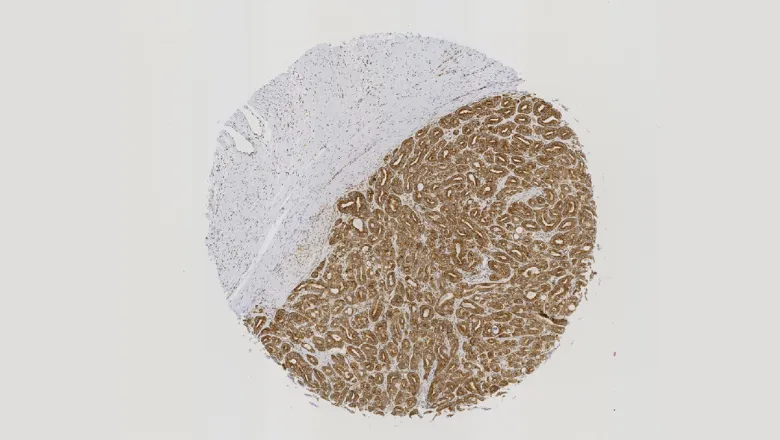RNA-binding proteins play crucial roles in almost all aspects of cellular biology and therefore it is not surprising that their dysregulation is linked to cancer. However, it has been difficult to put RNA binding proteins at the forefront of cancer biology. Our results show that two such proteins, LARP4A and LARP4B, promote cancer growth and spread that, if targeted, might contribute to cancer therapy.
Professor Sasi Conte
24 April 2024
New potential avenues for cancer therapies through RNA-binding proteins
A new paper highlights the role of two RNA binding proteins – LARP4A and LARP4B – in the development of cancer

A new paper describes the role of two RNA binding proteins in the development of sarcoma and carcinoma cancers, highlighting the important and emerging role of RNA binding proteins in cancer research and offering a new avenue for therapeutic targets.
This research was a key component of the PhD thesis of Jen Coleman, an MRC-DTP student who has since won a prize for best PhD thesis.
The traditional understanding of cancer is of a genetic disease driven largely by mutations to oncogenes, a loss of tumour suppressor genes, or a combination of both. Research in the last decade has also begun to look at RNA-binding proteins, which control what genes are expressed in health and disease.
Two RNA-binding proteins, called LARP4A and LARP4B, which have unclear roles in the development of cancer, was the focus of a new publication from the Conte and Grigoriadis labs at King’s.
The authors look at their role in the growth of sarcoma and carcinoma cancers. Blocking LARP4A and LARP4B was found to prevent the formation of cancers tumours, showing that they promote cancer growth. Their research also found that they play different, distinct roles within cancer cells.
Their results highlight for the first time the differences between LARP4A and LARP4B, and their role in cancer development. The authors hope that this can provide new avenues for drugs to therapeutically target LARP4A and LARP4B, and more broadly to realise the importance of RNA-binding proteins in cancer research.
The next steps for Conte and Grigoriadis labs will be to focus on further understanding the precise mechanisms that LARP4A and LARP4B use to promote cancer growth, which can be used identify targets for therapies.
In this story
Related departments
- Randall Centre for Cell & Molecular Biophysics
- School of Basic & Medical Biosciences
- Faculty of Life Sciences & Medicine
- School of Cancer & Pharmaceutical Sciences
- Faculty of Dentistry, Oral & Craniofacial Sciences
- Centre for Craniofacial & Regenerative Biology
- Centre for Craniofacial & Regenerative Biology


